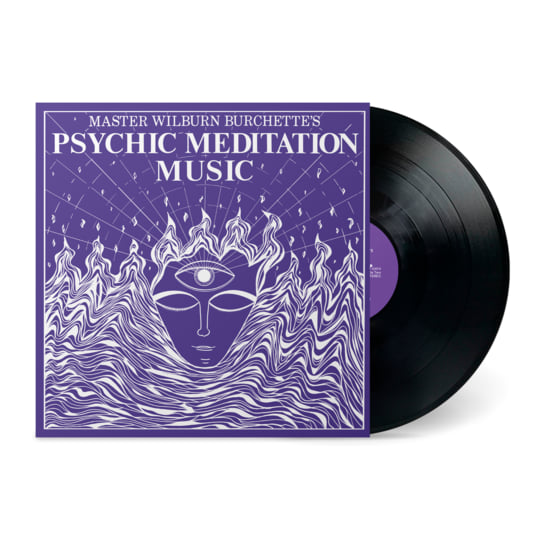Transform Your Reflection Experience With the Right Reflection Music Choices
The choice of music can significantly impact the reflection experience. Various genres and styles serve different purposes, affecting relaxation and emphasis. Ambient noises may produce harmony, while nature sounds can evoke a feeling of connection. Recognizing just how to choose the ideal music is crucial for enhancing mindfulness practices. What details components should one think about when curating a meditation playlist? The responses may change exactly how one techniques their meditative trip.
The Science Behind Music and Meditation
Lots of people delight in the calming effects of songs during meditation, the underlying science exposes a much deeper link between noise and mental well-being. Research suggests that songs can substantially affect brain activity, promoting relaxation and minimizing anxiety. When individuals pay attention to soothing tunes, their bodies produce reduced degrees of cortisol, the stress and anxiety hormonal agent, which facilitates a state of peace essential for meditation.Moreover, studies reveal that certain regularities and rhythms can improve emphasis and psychological guideline. The brain reacts to acoustic wave, turning on neural paths related to relaxation and mindfulness. This communication can result in raised alpha and theta brainwave activity, specifies frequently connected to much deeper meditation experiences.Additionally, music can serve as a support, helping specialists in preserving their emphasis and existence during reflection sessions. Recognizing the science behind songs and meditation highlights its potential to enhance mental clarity and emotional security, making it a valuable tool for practitioners.
Picking the Right Genre for Your Technique
How does one pick the most suitable style of music for reflection method? The selection of category significantly impacts the general reflection experience. Each genre evokes different psychological reactions, influencing relaxation and emphasis. As an example, ambient songs, defined by its soft, spiritual noises, frequently produces a relaxing atmosphere for deep meditation. Nature audios, such as flowing water or birdsong, can improve connection to the setting and promote mindfulness.Conversely, classical songs, especially pieces with sluggish tempos, can help with a calming yet structured reflection session. Making use of important music, lacking lyrics, decreases diversions, allowing specialists to submerse completely in their thoughts. Ultimately, the right genre relies on individual choices and the specific objectives of the reflection method. Experimentation with various styles can assist people find what reverberates best, fostering a much more enriching reflection experience.
Creating a Personalized Reflection Playlist
Crafting a customized reflection playlist can enhance the reflection experience by straightening the picked music with specific choices and goals. To develop a reliable playlist, one must first identify the desired state of mind or intention for every session, whether it's leisure, emphasis, or psychological healing. Selecting tracks that resonate with these objectives can magnify the influence of the reflection practice.Next, it is useful to explore numerous genres, such as ambient, classic, or important, while likewise taking into consideration the pace and rhythm of each piece. A well balanced mix of brand-new and familiar sounds may keep the experience fresh and appealing. Additionally, the length of the playlist should match the period of the meditation session, permitting a smooth flow without disruptions. Consistently updating the playlist can also assist keep motivation and inspiration, ultimately causing a much more meeting meditation trip.
The Role of Nature Seems in Enhancing Relaxation
Nature sounds play a considerable duty in enhancing relaxation during meditation, as they can stimulate a sense of calm and connection to the environment. The mild rustling of leaves, the comforting sound of streaming water, or the far-off calls of birds can carry the mind away from daily stressors, fostering a tranquil mental area. Study suggests that these natural sounds cause a physiological reaction, decreasing heart prices and reducing anxiety levels.Incorporating nature seems right into meditation practices can assist anchor the meditator's emphasis, assisting in a deeper state of mindfulness. As these noises are reassuring and usually acquainted, they produce a backdrop that encourages the release of stress. Whether with taped tracks or the natural surroundings, incorporating these auditory this link components can considerably improve the overall reflection experience. Inevitably, nature sounds serve as a powerful tool for those looking for to attain a higher feeling of peace and leisure during their practice.

Live Songs and Guided Procedure: An One-of-a-kind Method
Incorporating live songs into reflection techniques presents a transformative and vibrant aspect that boosts the experience past static nature sounds. Live musicians can create an one-of-a-kind environment, allowing participants to get in touch with the here and now moment through spontaneous melodies and rhythms. This interaction cultivates a much deeper emotional feedback, assisting individuals submerse themselves totally in the reflection process.Guided sessions that incorporate real-time Going Here music typically feature a facilitator who mixes verbal cues with musical accompaniment, enhancing emphasis and relaxation. The real-time aspect permits a fluid experience, adjusting to the team's power and needs in real-time. This adaptability can bring about enhanced states of understanding and much deeper states of relaxation.Moreover, live music can promote a feeling of community among individuals, as shared experiences commonly enhance the reflective journey. Ultimately, this unique technique enriches meditation, transforming it right into a interesting and multi-sensory experience.
Tips for Staying Mindful While Paying Attention to Music
Just how can one absolutely enhance their mindfulness while listening to music? To cultivate a mindful experience, people must first choose music that reverberates with their meditation goals, choosing for calming or instrumental pieces. Developing a committed room cost-free from diversions is necessary; this permits the audience to immerse themselves totally in the auditory experience. Focusing on the experiences evoked by the music-- such as rhythm, consistency, and tune-- can grow mindfulness.Practicing deep breathing while paying attention motivates people to link with the music on a profound degree. It is also helpful to keep an open recognition, recognizing thoughts and feelings that arise without judgment. By purposely returning focus to the songs whenever the mind wanders, one can strengthen the practice of mindfulness. Inevitably, incorporating these tips can transform the act of listening right into a rich, reflective experience that boosts overall well-being.
Often Asked Concerns
Just How Does Meditation Music Affect My Brain Waves?

Can I Utilize Popular Songs for Reflection?
Using pop music for meditation can differ in efficiency. While some individuals might find acquainted tunes comforting, others may be sidetracked by verses, potentially interrupting navigate to this site the reflective state sought during method. Personal choice plays an important role.

What Is the Ideal Volume for Meditation Songs?
The optimal quantity for meditation music is usually soft, permitting for a mild history visibility. This quantity fosters leisure without overwhelming the mind, advertising much deeper emphasis and a serene atmosphere for meditation techniques.
The length of time Should I Pay Attention to Songs During Reflection?
The period for listening to music during reflection varies. Normally, practitioners suggest 10 to thirty minutes, allowing adequate time to relax and concentrate (What Is The God Frequency). Eventually, specific choices and meditation goals influence the perfect listening size
Is It Okay to Sing Along While Meditating?
The question of singing along throughout meditation is subjective. Some people find it enhances their practice, while others believe it interrupts focus. Inevitably, individual preference and the meditation design dictate whether singing is appropriate. Many people appreciate the comforting effects of songs throughout meditation, the underlying science reveals a much deeper connection in between noise and mental health. Ambient music, identified by its soft, angelic sounds, usually develops a peaceful environment helpful to deep reflection. Nature audios, such as moving water or birdsong, can improve connection to the atmosphere and promote mindfulness.Conversely, timeless music, especially items with slow tempos, can promote a relaxing yet structured reflection session. Crafting a customized meditation playlist can enhance the reflection experience by lining up the picked songs with specific preferences and objectives. Incorporating live music into meditation methods introduces a transformative and vibrant component that enhances the experience past fixed nature noises.